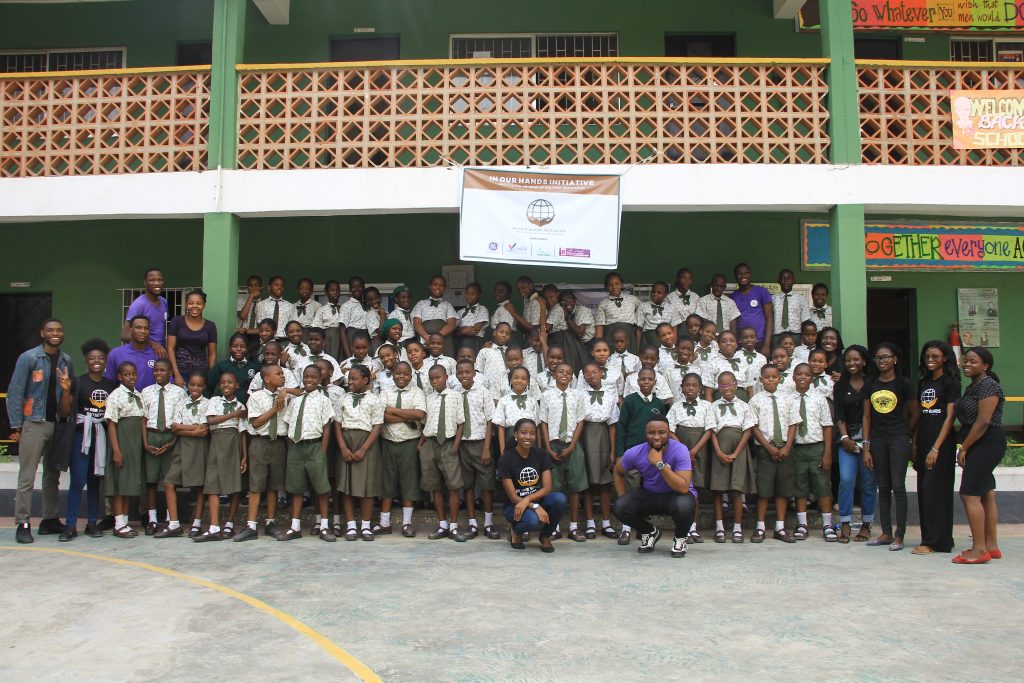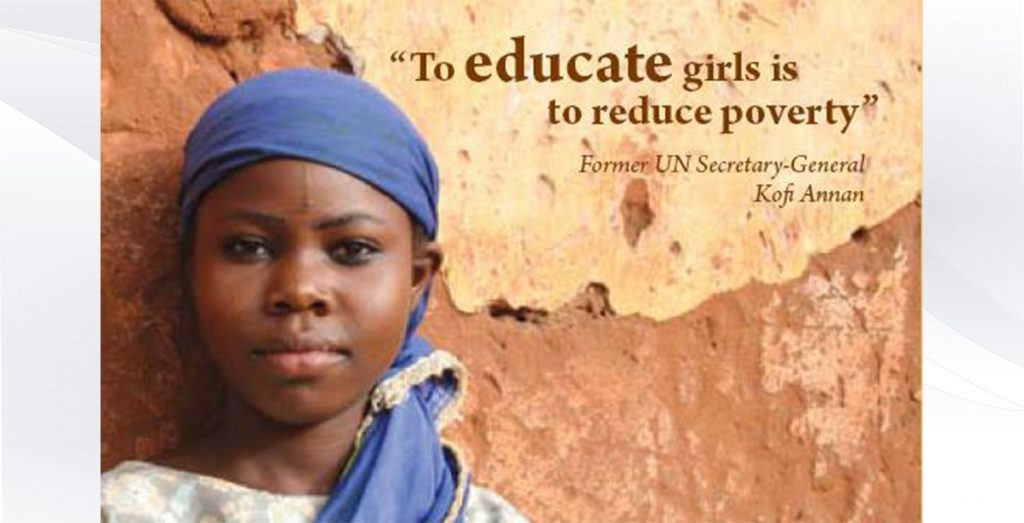OUR EXPERIENCE WITH DOREGOS PRIVATE ACADEMY.
Hi People! its that time of the week where we bring you interesting topics from the development space. Today will be different as we would be giving you a report on what we have been up to regarding our school tour. First up is Doregos Private Academy. Enjoy!

On the 23rd of January 2019, we kicked off our school tour for the year with a partnership with General Electric Early Career Graduate Program CSR Team in Nigeria. This time our location was Doregos Private Academy, Ipaja and we had 180 students in attendance. The day started with our volunteers brainstorming on the best and suitable ways to teach their students. This method helped our facilitator’s device methods for different age groups to leave the desired impact, which is a mindset shift.
We got the students ready for the first session with our Worksheet, which revealed the preformed knowledge of the students on the subject matter. During the second session, our facilitators explained what gender-based violence is, how to identify them and how to prevent it from happening in their environment.
The facilitators came up with practical exercises from our curriculum; A stage act, videos, and illustrations in the third session. These activities further helped to drive the message into the minds of the students. From the examples given, we could see that compared to 18% of students who did not have a clue on what gender-based violence is, 82% of them now fully understood the forms and preventive measures of it.
In the fourth session, the students had the opportunity to ask questions, give us feedback through our feedback forms and this greatly helped us to measure our impact as an organization and the need to get better as well.
We never go empty-handed to our schools, and this time, we had our flex ready for delivery. This flex summarized all that we had taught the students, so as to serve as a daily reminder of why they should not be a part of an abusive world.

We at IOHI are grateful for the gift of partnership and sponsorship because we believe that the right partnerships drive and ultimately helps achieve the SDG’s and also double our strength for lasting impact.
We are also grateful to our wonderful volunteers and facilitators, who go out of their way to make things happen for the organization.
We hope you enjoyed our report? see you next week, for another exciting time here on the blog!
































 In July 2018, I was on my way to the airport to get on a flight to Brazil. The weather was fine, the birds singing happily and everyone driving on the road seemed to be sane and happy. My dad turned the radio knob trying to find a radio station airing a nice program. This is where the sensitization began.
In July 2018, I was on my way to the airport to get on a flight to Brazil. The weather was fine, the birds singing happily and everyone driving on the road seemed to be sane and happy. My dad turned the radio knob trying to find a radio station airing a nice program. This is where the sensitization began.













 During the third session, we gave the students a feedback form and we found out based on our analysis and evaluation, that 80% of the students compared to 20% at the beginning now fully understood what the subject matter was all about and how to identify it and what to do when faced with such situation. Here are some of the feed backs we got from the students ;
During the third session, we gave the students a feedback form and we found out based on our analysis and evaluation, that 80% of the students compared to 20% at the beginning now fully understood what the subject matter was all about and how to identify it and what to do when faced with such situation. Here are some of the feed backs we got from the students ;

 IOHI did not come to play as we presented the school with a chart and books that summarized all that we taught the students on gender based violence.
IOHI did not come to play as we presented the school with a chart and books that summarized all that we taught the students on gender based violence.





 Abena is a graduate of the University of Cape Coast and currently a graduate student at the Ghana Institute of Journalism. She is a young people’s development activist and also has a social enterprise called Benewaa, it’s a clothing line that does advocacy through customized caps, t-shirts, sweaters and cardigans.
Abena is a graduate of the University of Cape Coast and currently a graduate student at the Ghana Institute of Journalism. She is a young people’s development activist and also has a social enterprise called Benewaa, it’s a clothing line that does advocacy through customized caps, t-shirts, sweaters and cardigans. Abena has a special interest in women and girls in rural communities. To her, rural women and girls face double the challenges their counterparts in the urban communities face. Challenges such as rape, domestic violence, harmful cultural practices like female genital mutilation, early and child marriages among others. Most parts of her childhood were spent between a rural community and a fishing community where girls had little or no aspirations and had no role models except the older women in their communities who themselves were usually domestic farmers, petty traders and fishmongers.
Abena has a special interest in women and girls in rural communities. To her, rural women and girls face double the challenges their counterparts in the urban communities face. Challenges such as rape, domestic violence, harmful cultural practices like female genital mutilation, early and child marriages among others. Most parts of her childhood were spent between a rural community and a fishing community where girls had little or no aspirations and had no role models except the older women in their communities who themselves were usually domestic farmers, petty traders and fishmongers.
 She usually does these training in partnership with other organizations, they join PTA meetings to educate parents on the need to prioritize the education of their daughters.
She usually does these training in partnership with other organizations, they join PTA meetings to educate parents on the need to prioritize the education of their daughters.



 Long-term they intend to collaborate with partners who have the same objectives as Hema in bridging health gaps, especially in marginalized communities. They also intend to promote maternal and child health through health talks, nutrition camps, water and sanitation programs.
Long-term they intend to collaborate with partners who have the same objectives as Hema in bridging health gaps, especially in marginalized communities. They also intend to promote maternal and child health through health talks, nutrition camps, water and sanitation programs.
 As we move on in the 21st century, there are issues around Gender and Development that need more attention and deeper interrogation. It is obvious that there is inadequate involvement of youths and because of these there is sustainability risk in the struggle and emancipation of women and this makes the intergenerational linkage very weak.
As we move on in the 21st century, there are issues around Gender and Development that need more attention and deeper interrogation. It is obvious that there is inadequate involvement of youths and because of these there is sustainability risk in the struggle and emancipation of women and this makes the intergenerational linkage very weak.








